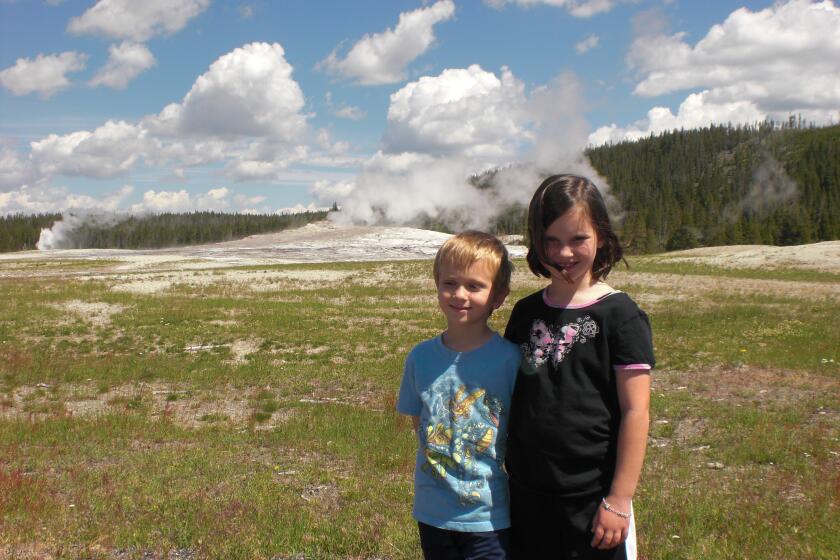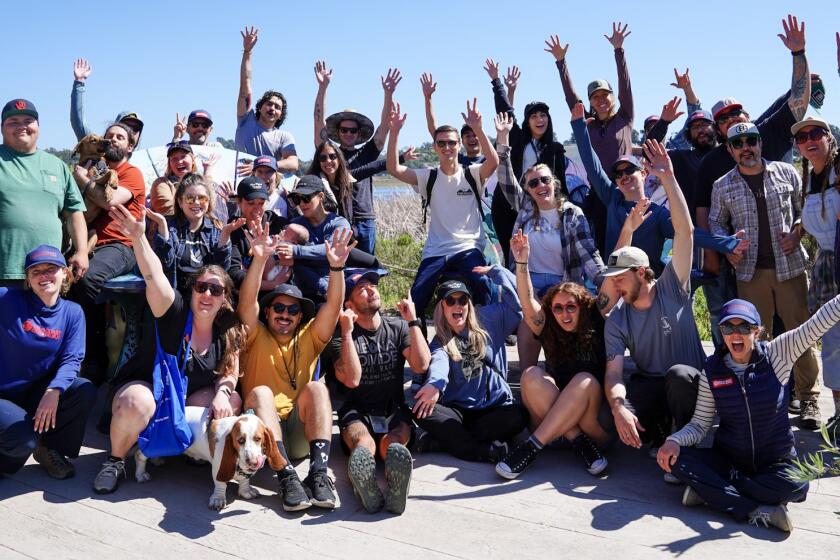Group’s academic boycott honors civil rights tradition
In the weeks leading up to the American Studies Association (ASA) annual conference, erroneous reports have alleged that the ASA intends to bar Israeli academics from participating at our upcoming annual conference in Los Angeles in November. A recent commentary in U-T San Diego by Michael M. Rosen said the same, claiming the ASA will “lock the doors” of the conference to Israelis. This allegation is absurd. There will not be discrimination of any sort against anyone. We welcome Israeli academics to attend, and in fact several are already scheduled to participate in the conference program.
Last year, after careful consideration by its membership, the ASA overwhelmingly endorsed an academic boycott to call attention to the violations of academic freedoms and human rights of Palestinian scholars and students by Israel.
This limited action means simply that the ASA on an institutional level will not engage in collaborative projects with Israeli research institutions, and will not speak at Israeli academic institutions.
In his commentary, Rosen tried to dismiss the urgent human rights concerns that motivate the ASA boycott, making the twisted claim that “Israeli universities are proudly, vibrantly open to Arabs, Jews and other ethnicities alike.” Perhaps by “open,” he means that Israeli universities are built directly on occupied Palestinian lands (for example, Ariel University and parts of Hebrew University in Jerusalem).
Israeli universities, like Technion, develop the technological capacities and military doctrines to occupy Palestinian territory. Meanwhile, Palestinian universities are regularly targeted by the Israeli state with violence and repression, using the doctrines and technologies developed by its academic institutions. True, Israeli universities may accept some Palestinian students, but they actively discriminate against those students by providing preferential admissions, scholarships, and even housing to those who have served in the army, resulting in de facto discrimination against Palestinians.
During the Gaza war, universities suspended students and withdrew scholarships from those who criticized the state on their own Facebook pages. There is a long record of Israeli universities arresting and harassing peaceful demonstrators and preventing scholars from traveling to participate in conferences. Rosen, who is currently in Israel, should be well aware that there are more than 50 Israeli laws that discriminate against Palestinian citizens of Israel, and Human Rights Watch has documented a two-tier legal system that discriminates against Palestinians in the West Bank. Similar racism led to students and professors taking action against apartheid South Africa; increasingly, they are doing the same regarding bigoted Israeli policies and laws.
The ASA is the nation’s oldest and largest association devoted to the interdisciplinary study of U.S. culture and history. We have a long-standing commitment to social justice and believe in the power of nonviolent strategies, such as boycotts and divestment movements, as a tool to effect political, social and economic change.
The academic boycott of Israel is grounded in the same anti-discrimination principles as other historical divestment and boycott strategies used to protest repressive state practices, including those employed against the South Africa apartheid regime and racial segregation in the United States. It is precisely these kinds of boycotts, which aim to effect “political, social and economic change,” that the United States Supreme Court has held to be constitutionally protected speech activities.
The ASA’s commitment to boycotting formal collaborations with Israeli institutions honors a long-standing American civil rights tradition. We are not deterred by baseless legal accusations, and we are not distracted by false reports that we are denying entry to our public conference. We look forward to a broad and vigorous academic discussion at our upcoming meeting, with scholars from a wide range of academic fields and national origins — including Israelis — on issues like transnational violence, indigenous rights, and, of course, the ASA academic boycott.
Get Weekend Opinion on Sundays and Reader Opinion on Mondays
Editorials, commentary and more delivered Sunday morning, and Reader Reaction on Mondays.
You may occasionally receive promotional content from the San Diego Union-Tribune.





